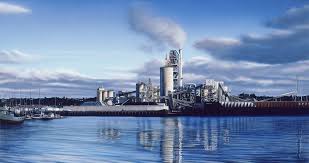The Impact of Cannabis Legalization on Washington D.C.’s Economy: An Analytical Overview


Cannabis has long been a contentious subject. For some, it symbolizes a variety of social, economic, and medical benefits that can be unlocked through legalization and responsible use. For others, it remains taboo, tied to criminality and social decay. As the legal landscape for cannabis shifts, providing a unique opportunity for us to examine how these perceptions manifest in reality.
In this extensive deep dive, we will explore the specific impact cannabis legalization has had on the economy of Washington weed dc., a city renowned for its policy influence and forward-thinking initiatives. Leveraging analytical tools and extensive research, we aim to provide a comprehensive understanding of how the green wave has shaped the capital’s financial landscape.
A Brief History of Cannabis Legalization in Washington D.C.
The journey of cannabis legalization in Washington D.C. is marked by a combination of progressive movements and complicated federal oversight. While the Compassionate Use Act of 1998 provided a legal framework for medicinal marijuana use, full recreational legalization took a much longer and more fraught path.
The city’s unique status as a federal district places it under the direct oversight of Congress. This has led to a cautious approach to cannabis reform, with an initial voter-approved initiative hampered by the federal government’s budget restrictions until 2014. Today, the city stands as a beacon for cannabis policy and as a case study for its economic ramifications.
The Legal Cannabis Market in Washington D.C.: A Fiscal Outlook
As D.C. carved out a legal path for cannabis, the market saw rapid expansion. The creation of a regulated industry brought in new tax revenues and business opportunities. Our analysis delves into the fiscal aspects, dissecting tax yields, business growth, and government overhead.
We’ll examine how tax structures have been designed to funnel revenues into public welfare programs and whether they have sufficiently funded these initiatives. Moreover, we aim to scrutinize the cost-benefit analysis that legalization proponents often tout – have the social and economic returns justified the regulatory and enforcement expenses?
Employment and Labor Trends: Growing Jobs or Up in Smoke?
Cannabis legalization is sold, in part, as a job creator. Pertinently, we investigate Washington D.C.’s labor statistics – have employment figures pointed upwards due to the creation of new jobs in cultivation, retail, and ancillary industries?
We’ll also unpack the working conditions in the cannabis sector and address concerns around workforce safety and fair labor practices. By comparing employment data pre- and post-legalization, we can offer a nuanced look at the industry’s ability to provide sustainable career paths.
Real Estate and Urban Development: High Demand or Known to Stunt Growth?
The green rush is often known to catalyze changes in the real estate market and urban development. In Washington D.C., have we seen a correlation between cannabis legalization and shifts in property values, new construction, or revitalization of previously overlooked areas?
We’ll survey zoning laws, property tax assessments, and public records to map out the changes. Moreover, we will assess the impact on urban spaces, including cultural shifts, increased tourism, and community transformation.
The Retail and Consumer Experience: From Access to Product Development
What does the consumer landscape look like post-cannabis legalization in Washington D.C.? Our analysis goes beyond the typical headcount of dispensaries to investigate accessibility and diversity in the market.
We will explore consumer profiles, product innovation, and the burgeoning verticals of cannabis tourism and events. Anecdotal evidence and data-backed trends will inform a picture of whether D.C.’s cannabis market has matured to meet a broad array of consumer needs.
The Social Justice Dimension: Equitable Opportunities or a Looming Crisis?
Cannabis legalization, often, is a quest for social justice. Regulatory frameworks are expected to redress past inequities, especially in criminal justice. How has Washington D.C. fared in providing equitable opportunities to minorities, who have historically borne the brunt of the drug war?
With detailed research on arrest rates, ownership diversity in the industry, and programs designed to support underprivileged communities, we will assess if the capital’s approach to legalization is fulfilling its promise of inclusion and justice.
Conclusion: The Full Economic Picture Post-Cannabis Legalization
Our journey through the impact of cannabis legalization on Washington D.C.’s economy will culminate in a comprehensive overview. We will synthesize the data and stories to present a balanced, analytical narrative of the green industry’s effects in the district.
It is our hope that through this detailed exploration, we can contribute to the ongoing dialogue on cannabis policy and its effect on local economies, offering insights that can inform future legislative initiatives and economic projections.






